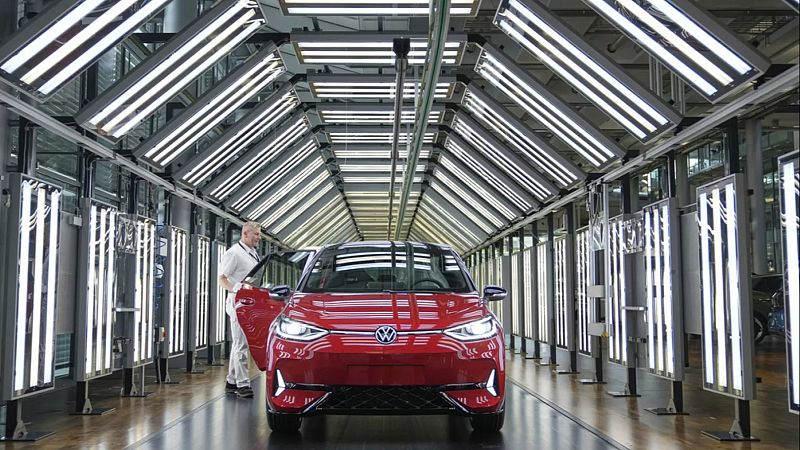
New car registrations in the European Union fell in the first five months compared to the previous year, according to the European Automobile Manufacturers’ Association (ACEA).
The share of battery-electric vehicles increased further, representing 15.4% of the market, although ACEA said that it is “still far from where it needs to be.”
Looking at the year-on-year total solely in May, 1.6% more vehicles were registered. Within this, EV sales jumped by 25%.
By power source, the leading type of car has become the hybrid-electric, having seen a surge in the first five months and capturing 35.1% of the market.
Meanwhile, the combined market share of petrol and diesel cars fell to 38.1%, down from 48.5% over the same period in 2024.
Three of the four largest car markets in the EU, accounting for nearly two-thirds of all battery-electric car sales, saw soaring numbers. In the first five months, Germany saw an increase of 43.2%, Belgium 26.7%, and the Netherlands 6.7%, compared to last year. France saw a decline of 7.1%, although it was coupled with a gain in hybrid-electric cars (+38.3%).
The latter category saw a nearly 20% jump across the EU in the period between January and May, compared to the previous year.
Overall car sales were soaring in Spain, which is the only country among the four biggest EU economies, including France, Germany and Italy, with increasing numbers year-on-year for the first five months.
Spanish new car registrations jumped by 13.6%, EVs soared by nearly 79%, plug-in hybrid sales rose by more than 66% and sales of hybrid-electric cars increased by nearly 35%.
While petrol and diesel cars are gradually losing their market share, newly registered petrol car numbers increased in Bulgaria, Croatia and Latvia, in the January to May period, compared to the previous year.
Meanwhile, diesel car sales rose in Hungary, Lithuania, the Netherlands and Slovenia in the same period.
Which brands were the most favoured in the EU?
The Volkswagen Group, which includes brands like Skoda, Audi and Porsche, remained the market leader in the bloc. Its new car registrations were boosted by 4.8% year-on-year, with Cupra gaining nearly 50% but Porsche sales falling by 22%.
Stellantis, owner of Peugeot, Fiat and Citroen, among others, sold 10% fewer vehicles than last year. The Renault and BMW groups increased their EU sales by 6.6% and 3.9% respectively. Toyota, Hyundai and Mercedes sold fewer cars than in the first five months of 2024.
The competition to dominate the European EV market is continuing. Chinese state-owned SAIC Motor increased its sales in the bloc by 49.1% between January and May, selling 88,475 vehicles and outperforming Tesla. The Texas-based company had 50,413 new cars registered in the EU in the first five months, which is 45.2% fewer than in the previous year.
Mazda, the Jaguar Land Rover Group, Mitsubishi and Honda saw the fewest new cars registered in the EU.







